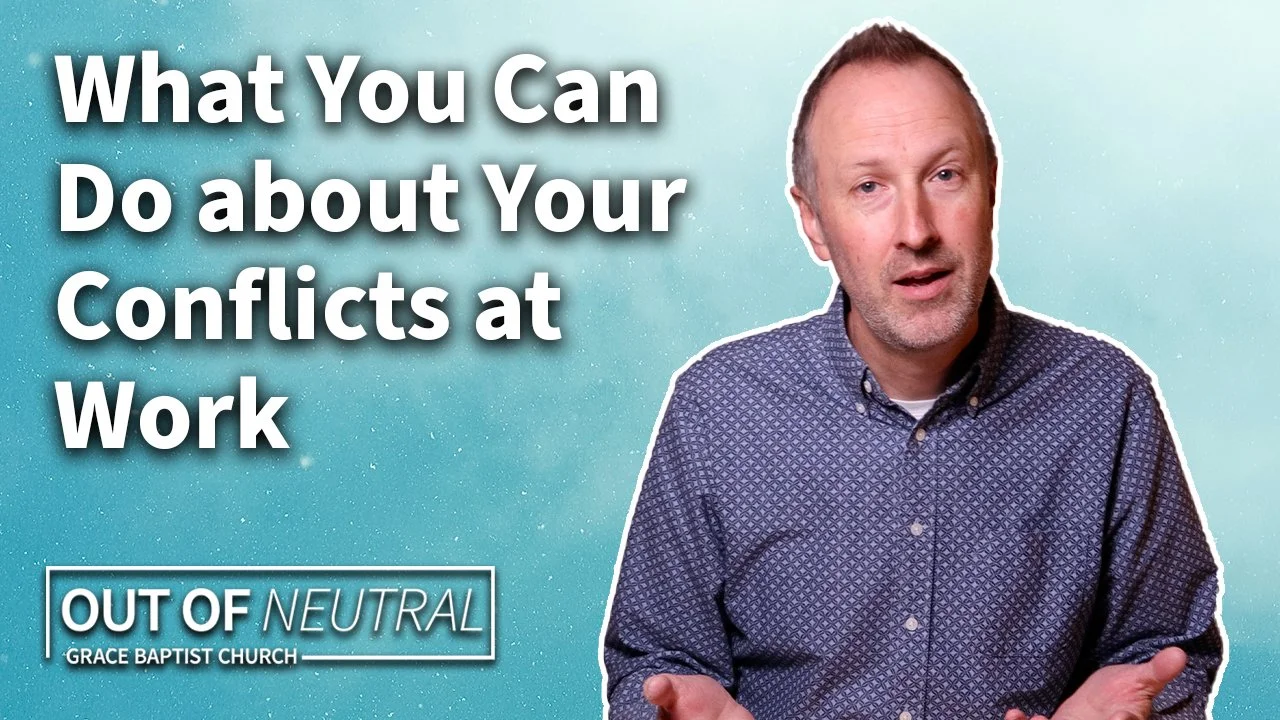Click on the image above for the video of this article or keep reading below for the text version.
There are many things that make work hard. There are pressures, deadlines, expectations, and crises to deal with. While those things make work difficult, it’s almost always the people problems that make work unbearable. Conflict with coworkers keeps you up at night and makes you dread getting up in the morning. So, what can you do about it?
Mike Myatt is a leadership advisor to Fortune 500 CEOs and Boards and, in an article in Forbes magazine, he talked about some of the solutions to workplace conflict. After listing a number of keys, he summarized his thoughts this way:
“Bottom line…I believe resolution can normally be found with conflicts where there is a sincere desire to do so. Turning the other cheek, compromise, forgiveness, compassion, empathy, finding common ground, being an active listener, service above self, and numerous other approaches will always allow one to be successful in building rapport if the underlying desire is strong enough. However, when all else fails and positional gaps cannot be closed, resolve the issue not by playing favorites, but by doing the right thing.”
I completely agree with Myatt’s conclusion, but it left me feeling hopeless. It only served to point out to me why there’s so much conflict between people and why it’s so difficult to resolve.
I agree that resolution to conflicts can be found when there’s a sincere desire to do so, but I’m not sure that’s usually people’s goal. More often than not, conflict happens because someone wants to get their own way, and they end up hurting someone else in the process. At that point, neither person wants resolution: one wants victory, and the other wants justice.
Turning the other cheek is crucial to healthy relationships, but what do I do when I’m the only one who ever turns the cheek? If someone’s cheeks are getting bruised from all the slapping, sooner or later, they’ll slap back.
The same is true with compromise. It’s vital for people to compromise if they’re going to work together effectively, but most of us don’t like to do it. We like to get our own way, and someone who compromises all the time can become a target for selfish coworkers who see compromise as a sign of weakness and move in to take advantage.
Forgiveness is also crucial to resolving conflicts, but fight or flight are far more common responses to wrongs done against us. We tend to hit back or else we retreat. People look for subtle or not-so-subtle ways to retaliate, or else they harbour the grudge silently or leave the job completely.
The same could be said for compassion, empathy, finding common ground, being an active listener, and focusing more on serving than self. These are important qualities and Myatt is right in identifying them. My question is: Where do you find the motivation to practice them when there’s conflict? Our emotions usually drive us in the exact opposite direction.
The Bible provides what I believe is a profound solution. It says simply, “We love because he first loved us” (1 John 4:19). It’s saying is that we develop a capacity to love other people by first receiving the love that God has shown to us. In Jesus, we meet someone who is so committed to resolving the conflict we had with God that He was willing to sacrifice everything to accomplish it. He wasn’t just willing to turn the other cheek; He gave up His life for us. And even as He was dying on the cross, He famously prayed, “Father, forgive them, for they know not what they do” (Luke 23:34). When you receive that kind of forgiveness, it gives you power to show that forgiveness to others. When you realize how much He gave up to make peace when you were His enemy, it motivates your own efforts to make peace with those who treat you like their enemy. The love of God in Jesus Christ is the only thing I know that makes possible what Mike Myatt calls the bottom line of workplace conflict resolution.
If this is new to you and you think it’s something you’d like to explore, I’ve written a free 12-week course called The Unstuck Life that walks you through the essentials of Jesus’ teachings in daily bite-sized messages that you can read or watch by video. To learn more, go to www.gracebc.ca/getunstuck.
In awe of Him,
Paul












